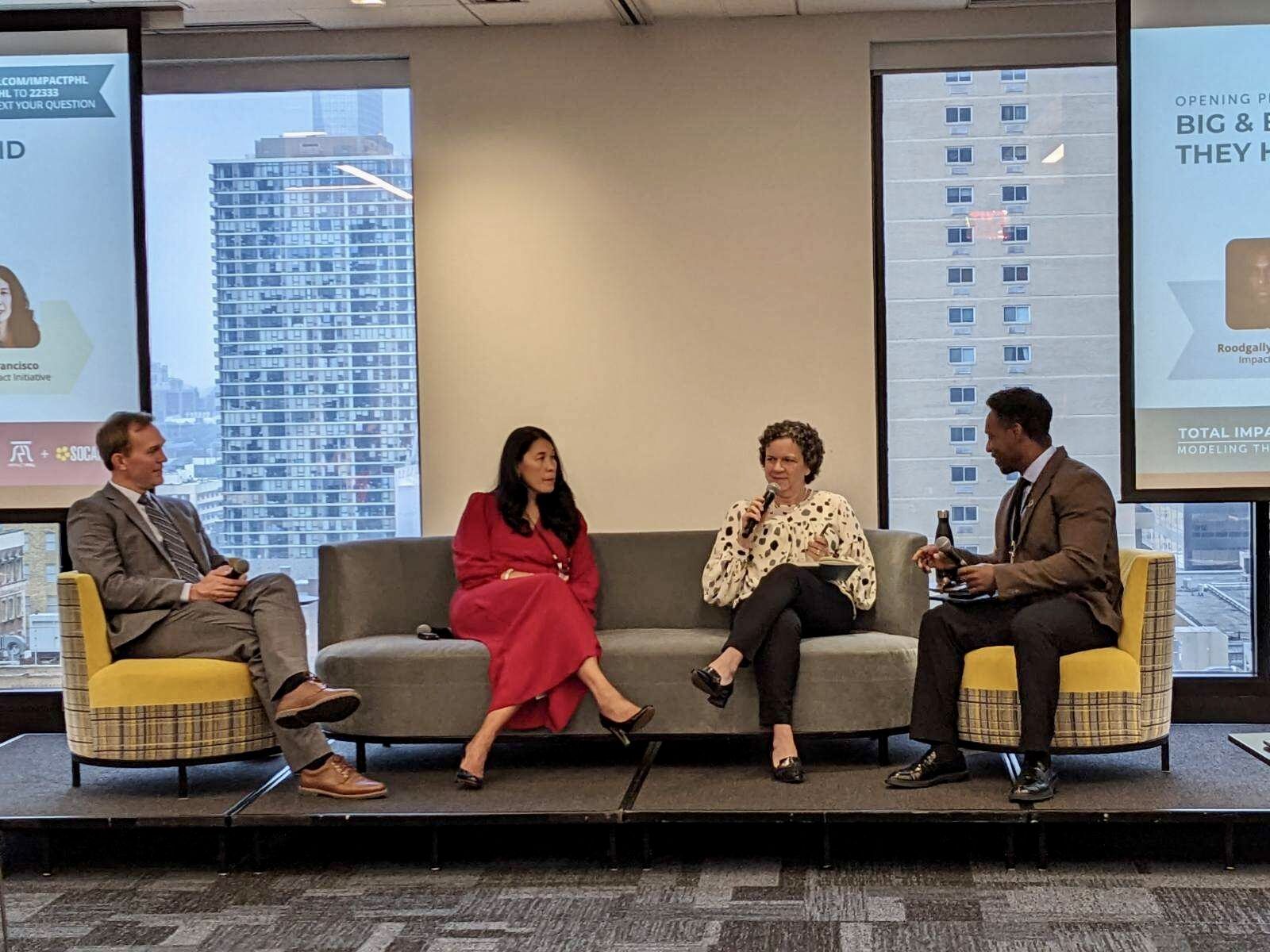Greetings, Agents of Impact!
Series: What’s Next
Training grounds for the next generation of impact talent. “By expanding both coursework and hands-on experiential learning opportunities at the graduate and undergraduate levels, we can expect a larger, stronger cohort of impact investment professionals to emerge,” wrote the GIIN’s Amit Bouri in his call for ideas for mobilizing and developing talent for impact investing. More than a dozen contributors responded with ideas, including examples of pioneering MBA programs already offering academic training in impact investing and sustainable finance as well as initiatives that give would-be practitioners a chance to build portfolios, diligence venture investments and work with entrepreneurs. Sure, the impact investing talent pipeline still is far from robust. But these Agents of Impact aren’t letting perfect be the enemy of the good.
- Experiential education. There’s no substitute for experience, says Bridges Fund Management’s Brian Trelstad. The MIINT program (co-produced by Bridges and Wharton) each year gives more than 600 students from 32 MBA programs the opportunity to source, diligence, and present early-stage impact investment ideas to expert judges. ANDE’s summer associate training is a crash course in impact and investing. Programs like Capria’s fund of funds model and Acumen Fellows, “are linking the next generation of talent with the opportunity to invest in and support high-impact investments.” The Impact and Sustainable Finance Faculty Consortium is a network of faculty who exchange impact investing curricula and research. The consortium is based at Northwestern’s Kellogg School of Management, which also hosts the Kellogg Morgan Stanley Sustainable Investing Challenge.
- Building portfolios. The Total Impact Portfolio Challenge worked with 121 students at 19 universities in its first year, reports Good Capital Project’s Sharadiya Dasgupta. The challenge provides “students an on-ramp into portfolio construction with an impact lens across asset classes, and the risk-return spectrum.”
- Broadening the pipeline. Students at land grant universities, historically Black colleges and universities, minority-serving institutions and universities in emerging markets may not be exposed to opportunities such as the MIINT and Total Impact Portfolio Challenge that provide participants a leg up for impact investing jobs, says Wharton Social Impact’s Nick Ashburn. “That’s likely to be a major problem as the industry continues to develop.”
Keep reading “Training grounds for the next generation of impact talent,” on ImpactAlpha. And catch up on all of ImpactAlpha’s talent roundups:
- “Broaden the talent pool and cultivate an ‘impact mindset’ as a competitive advantage”
- “Driving ‘impact-career alpha’ and upgrading the talent pipeline”
Dealflow: Follow the Money
Africa Healthcare Network secures funding to expand care centers for kidney patients. Happy World Kidney Day! Yep, that’s a thing. Today’s awareness campaign coincides with financing for Africa Healthcare Network, which is expanding its network of low-cost dialysis clinics in Rwanda, Tanzania and Kenya. Few East Africans with kidney disease get life-saving treatments because of a shortage of doctors to diagnose the diseases, and a lack of access to dialysis. The healthcare network has opened eight dialysis treatment centers in Rwanda and Tanzania since 2015 to treat public-health patients for whom private facilities are too expensive. Healthcare investment firm Asia Africa Investment and Consulting and Polaris Partners backed the company’s Series A funding round. Check it out.
CalSTRS anchors Impactive’s responsible-investing hedge fund. The $227 billion pension fund, the second-largest in the U.S., is committing $250 million to Impactive Capital, a new hedge fund launched by Lauren Wolfe and Christian Asmar, formerly of Blue Harbour Group. Impactive’s founders have a long-term investment strategy focused on positive ESG (for environmental, social and governance) performance. “The pendulum has swung too far toward a hyper-focus on short term results,” Wolfe said. “We take a longer-term view of our investments.” The investment from CalSTRS is part of the pension fund’s expanding capital allocation to responsible investments and growing focus on activist strategies. Read on.
Signals: Ahead of the Curve
Norway’s $1 trillion sovereign fund to divest $7.5 billion in oil and gas stocks. Norges Bank, which manages the fund, cited oil price risk. The move, which affects shares in 134 companies that are exclusively focused on exploration and production, excludes some majors, including Shell and ExxonMobil, which have mixed business models. State oil producer Equinor is also exempt. “The objective is to reduce the vulnerability of our common wealth to a permanent oil price decline,” said finance minister Siv Jensen. The finance ministry’s proposal must pass Norway’s parliament, where it appears to have majority support.
- Diverging strategies. Norway’s parliament approved a plan to divest from coal companies back in 2015 and the sovereign wealth fund has made other moves away from fossil fuels. But the oil industry will continue to be a major industry in Norway, says the government; the sovereign fund is built on North Sea oil revenues.
Agents of Impact: Follow the Talent
Dennis Woodside, most recently chief operating officer of Dropbox, joins foodtech startup Impossible Foods as president… Casey Clark, previously with Glenmede Trust Co., joins Rockefeller Capital Management as its first head of ESG investments… Net Impact is recruiting a chief executive officer in San Francisco… Impact Community Capital seeks a financial analyst, also in San Francisco.
— March 14, 2019.











